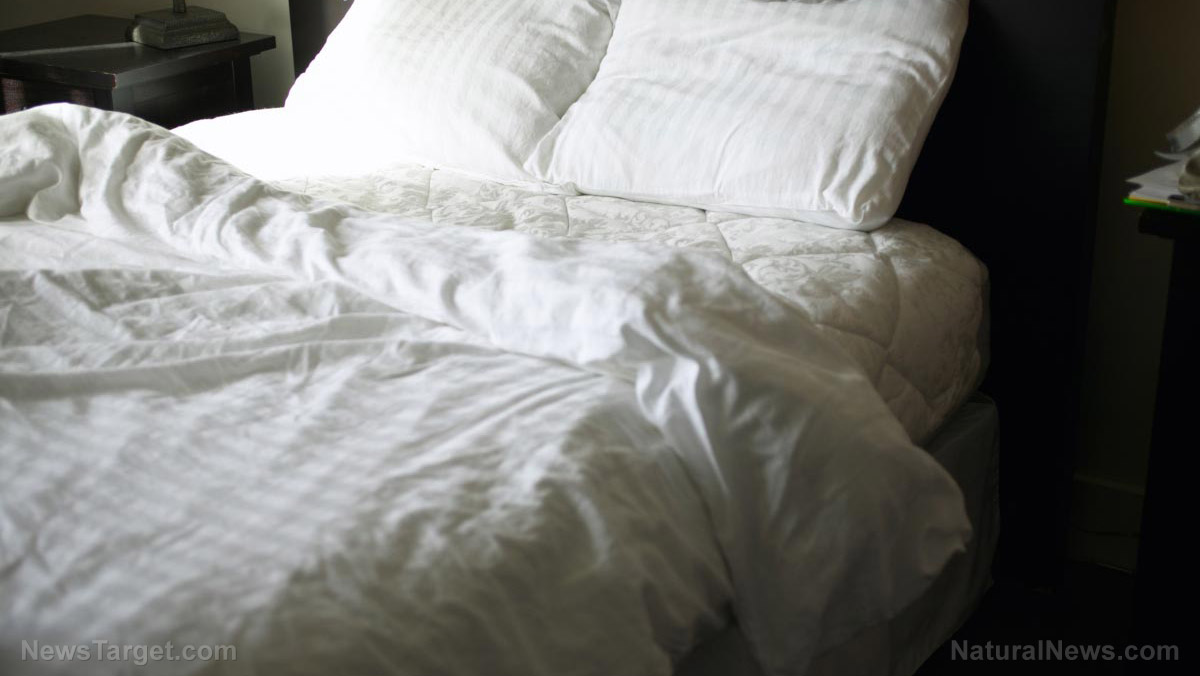Are you washing your sheets often enough? Analysis shows most people don’t
09/11/2017 / By Isabelle Z.

You probably wouldn’t dream of wearing the same shirt every day for a month straight without washing it, but somehow most people do not extend this philosophy to their sheets. While washing your bed linens after each use would be overkill, the truth is that a lot of people are not getting their sheets clean nearly as often as they should.
It’s easy to let the task go. Perhaps you wait until your hamper is full to do laundry, at which point the load is too big to add sheets. You’ll wash them tomorrow, you tell yourself, and then mindlessly make your bed when you wake up and forget all about it. If these scenarios are familiar, it’s time to change your mindset, and the following disturbing facts about precisely what is lurking between your covers should be all the motivation you need.
Think about it: we spend around a third of our day in our sheets, so it doesn’t take long for dirt and bacteria to build up. New York University’s Director of Clinical Microbiology and Immunology Dr. Philip Tierno, Jr. says that bacteria, dead skin, mites and fungus are just a few of the unpleasantries that can start to accumulate in your sheets after sleeping in them for just one night.
In addition, the average person is said to produce more than 98 liters of sweat every year, so those breakouts and skin irritations you experience could well be coming from your sheets, especially your pillowcases.
Australian cleaning expert Shannon Lush says that people should wash their sheets once a week if they shower every day. That’s pretty manageable, right? But there’s more: she suggests that people change their pillowcases every other day. This is important because your hair holds a bigger amount of dirt than any other part of your body, and it rests on your pillowcase and is then transferred to your face, causing breakouts.
What’s more disturbing: the bacteria in your sheets or the chemicals in your detergent?
If you’re about to stop reading and go strip your bed, wait a minute. There is another factor you need to consider before proceeding: your detergent. Most supermarket laundry detergents contain a host of scary chemicals in order to give that fresh flowery hillside feeling portrayed in their commercials. Phenols, for example, are easily absorbed by your skin and have been linked to damage in the heart, liver, kidneys and lungs. Bleach is a strong irritant that can cause severe reactions. Artificial fragrances, meanwhile, can cause watery eyes and trigger asthma attacks and allergies. Are you sure you want all of these ingredients in contact with your skin all day and night?
Thankfully, Mike Adams, the Health Ranger has come up with a safe alternative to these risky detergents for those who take their health seriously in the form of Health Ranger Select Laundry Detergent Powder. Free from bleach, perfume, dyes, phosphates, lye and abrasives, this carefully crafted detergent contains simple and effective ingredients that are also natural, so you don’t have to worry about dangerous chemicals touching your skin. Moreover, these ingredients don’t leach toxic chemicals into the water and soil and damage coral reefs like most commercial detergents do, making it an environmentally-friendly choice as well.
With clean ingredients like sodium bicarbonate and sodium chloride, your sheets and clothes will be washed thoroughly yet gently. This means you can start washing your pillowcases every other day like experts recommend without worrying that you’re resting your face against a toxin-drenched pillowcase.
What are you waiting for? Toss the toxic laundry detergents and get your hands on a natural one like Health Ranger Select Laundry Detergent Powder and make a point of washing your bed linens as often as you can. Don’t let your bed become a petri dish!
Sources include:
Tagged Under: bed linens, Better SLeep, clean home, detergent, Laundry, laundry detergent, natural detergent, sheets




















